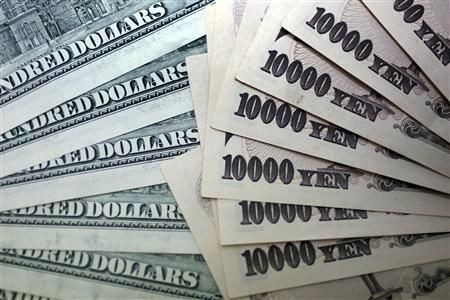Japan Announces $5.3 Billion Stimulus To Boost Economic Growth

Japan’s government announced a stimulus package of 422.6 billion yen ($5.3 billion) as a measure to bolster the weakening economy and revive the economic growth momentum.
The package will include funds to prevent disasters and also to the revive farming and energy sectors. This announcement comes after the Ministry of Internal Affairs and Communications reported Friday that the core consumer price index dropped 0.1 percent in September up from a 0.3 percent decrease in August, indicating that the country was continuing to struggle to control its deflation.
Last month, the Bank of Japan announced stimulus measures in an attempt to rejuvenate the country’s economy. This increased the size of its asset purchases by 10 trillion yen ($127 billion) to 80 trillion yen. The central bank decided that the increased amount would be used for purchasing the treasury discount bills and the Japanese government bonds.
However, the central bank maintains that the concerns about the condition of the global economy persist, especially because of the debt burden faced by the euro zone. Earlier this month, the BoJ indicated that the general business conditions in the manufacturing sector in Japan worsened in the quarter ending Sept. 30, indicating that the country’s economy continued to be affected by the weakening of exports due to the soft global demand.
Japan reported Monday a rise in trade deficit in September compared to the same month last year with a decrease in exports and increase in imports. Japan’s Finance Ministry data showed that the country recorded a 558.6-billion yen ($7.0 billion) trade deficit in September, compared to a surplus of 288.8 billion yen last year.
Exports dropped 10.3 percent in September from a year earlier, indicating the soft global demand. There was a slump of 14.1 percent in exports to China compared to the previous year. While exports to Europe dropped 21.9 percent, exports to the U.S. rose 0.9 percent. The continuing debt crisis in Europe and the strength of the Japanese yen have also hurt the demand for exports, the key driver of Japan's economy.
Meanwhile, imports rose 4.1 percent in September from the previous year as the nuclear energy crisis has resulted in the increased need of oil and gas. Japan's economy grew at 0.3 percent in the April-June quarter, down from the 1.2 percent in the first three months of the year.
Market players sense that more measures, other than the currently available stimulus, will be required to revive the growth momentum.
© Copyright IBTimes 2025. All rights reserved.





















